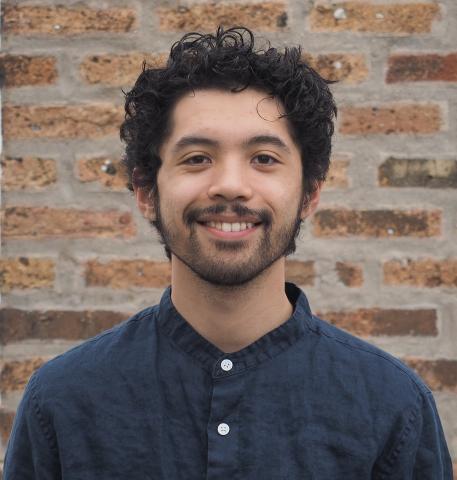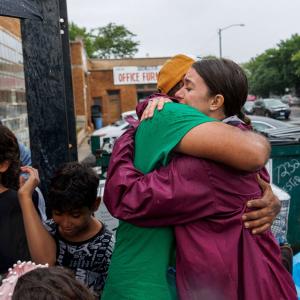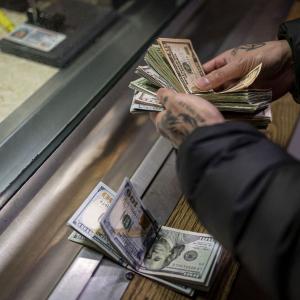
Colton Bernasol is an editor and writer from Plainfield, Ill., a Southwest suburb in the Chicagoland area. He writes at the intersection of religion, society, and culture. You can sign up for his newsletter, Provisional, here.
Posts By This Author
Tracing a Crude Political Vision of Christian Domination
A NETWORK OF outspoken Christian nationalists is growing in popularity. They are not yet mainstream, but their drive for power is irrefutable. In Onward Christian Soldiers, the second season of the NPR podcast Extremely American, hosts Heath Druzin and James Dawson trace the rise of this Christian nationalist movement as manifested in the ministry of Doug Wilson, the reactionary, fundamentalist pastor of Christ Church in Moscow, Idaho.
Wilson and his followers are forthright about their goal. “Our mission at Christ Church is summed up by the phrase, ‘all of Christ for all of life,’” according to the mission page on the church’s website. “Under the grace of God, this means that our desire is to make Moscow a Christian town.”
Across eight episodes, listeners of Extremely American witness Wilson’s emergence: The son of a Christian bookstore owner, Wilson takes on the mantle of preacher, excels in his philosophy classes, becomes an intuitive builder of institutions, and uses these skills to advance a crude political vision of Christian domination.
Chicago Churches Oppose Calls to End City’s Sanctuary Status
In 1985, Chicago Mayor Harold Washington passed an ordinance prohibiting city workers from cooperating with immigration police to detain and deport undocumented migrants. With this ordinance, Chicago became a sanctuary city, joining other U.S. cities in resisting policies that criminalize migration. Almost 40 years later, Republican Gov. Greg Abbott has used Chicago’s sanctuary status as an excuse to bus and fly thousands of migrants to the city from Texas, where he has instituted strict migration policies.
Since Texas began bussing and flying migrants to Chicago in 2022, the city has welcomed over 30,000 migrants. These migrants have endured terribly cold winters, undignified housing, and a city divided by feelings of frustration, indifference, and solidarity.
By Eliminating Cash Bail, Illinois Is ‘Setting the Captives Free’
Illinois set a historic U.S. precedent on Sept. 18, when it became the first state to abolish cash bail.
Cash bail, or the practice of imprisoning people accused of crimes before their trial unless they can pay a certain amount of money set by a judge, has a pernicious history. In the United States, cash bail has led to high rates of pretrial incarceration. Consider these statistics: There are more than 400,000 people in the United States who have been incarcerated without a trial. In Illinois, the problem has been especially sobering, with the Center for Criminal Justice of Loyola University Chicago reporting that in 2020 and 2021, 173,000 people were held in jail before a trial.
My Abuela's Belief and My Doubt
I’ve never felt the certainty of divine presence in my life. I’ve chased it, I’ve wanted it, but I have never felt it. My religious experience is more akin to poet and essayist Christian Wiman’s experience. Wiman describes God as “... my bright abyss / Into which all my longing will not go.” I persistently feel my attempts to address God are met with emptiness, and yet I find it impossible to abandon the language of religion. What do I do about this “bright abyss” that I seek but never find? What do I make of this divine glow on the horizon of my experience that all but fades away when I seek it?



